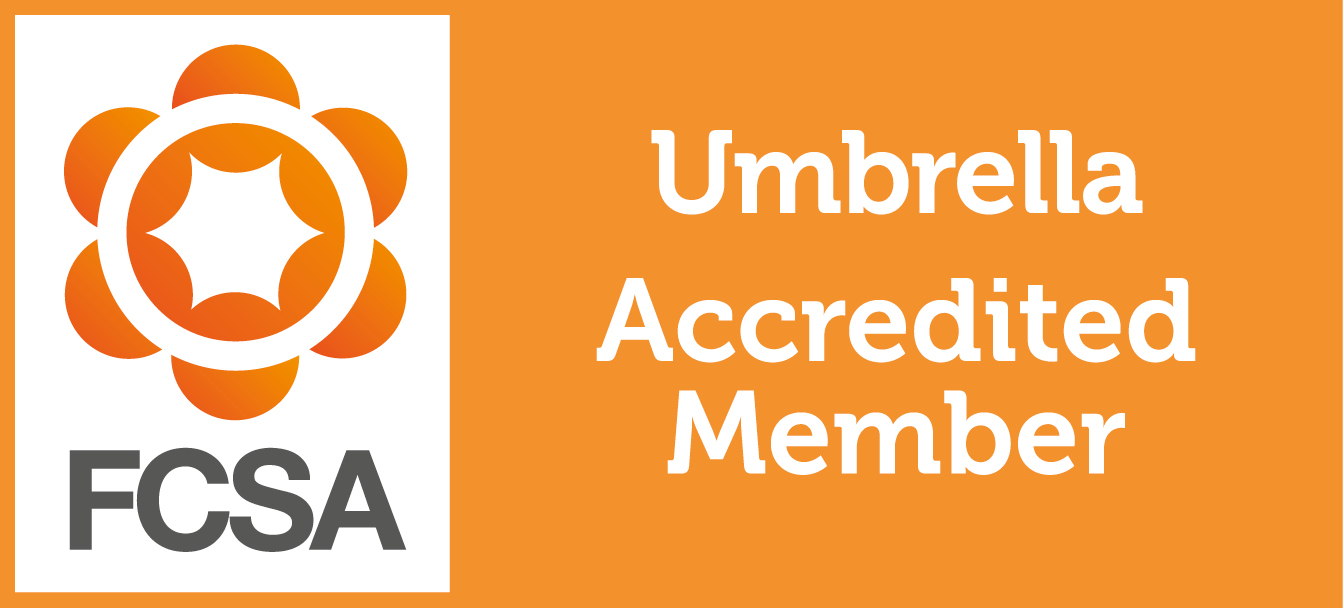
There are plenty of unethical umbrella companies on the market advertising 90% pay retention, and it is more important than ever to do your research and conduct the proper due diligence. Our blog answers the age-old question: what deductions should compliant umbrella companies make to a contractor’s pay?
What deductions will compliant umbrella providers make to your pay?
Permanent employees do not have to worry about what goes on behind the scenes; they turn up to work and are paid a salary in exchange for the work completed. Their employer will take care of everything else from deducting the employee taxes, as well as the employer taxes and pay them to HMRC.
When you start contracting, your invoices are untaxed. You will need to go through a similar process to an employer and ensure the correct tax is paid to HMRC before you receive a salary. Whether you go limited or umbrella will depend on your personal preferences, the client’s preferences, or if the role is inside or outside IR35.
Umbrella companies are simply payroll companies which facilitate the payment of contractors who are not operating through a limited company. When you register with an umbrella company, you become an employee of that company, and your taxes will be calculated and deducted in a similar way to permanent employees.
Your end client or recruitment agency will pay the assignment rate (including your gross, untaxed day rate) into the umbrella company’s bank account. The umbrella company will deduct the employment costs from the assignment rate and then calculate and deduct the appropriate taxes from your gross rate and pay these to HMRC. Once your tax has been paid, they’ll pay your net salary directly into your bank account.
The only way you should receive payment from a compliant umbrella company is after all tax deductions are made. This is because you are an employee and all income are subject to tax and NI and deducted at source. It is illegal for an umbrella company to issue you with a gross payment and you make the tax deductions yourself.
The deduction of employment costs
There is a lot of debate surrounding the legitimacy of umbrella companies deducting employment costs from workers’ pay. However, it is essential to understand that a compliant umbrella company will not deduct employment costs from their workers’ pay, and these deductions are factored into the assignment rate.
The Agency Workers Regulations 2010, stipulate that umbrella employees must receive at least the equivalent rights to their full-time comparable, including pay. Therefore, the assignment rate must be greater than the rate which the equivalent employees of the recruitment agency or end client receive to achieve that.
It is a legal requirement for all employers to pay Employers National Insurance, as well as process employee deductions. The assignment rate is the rate charged by the umbrella company to the recruitment agency or end client and employment costs (Employers NI, the Apprenticeship Levy, Holiday Pay and pension contributions – if applicable) are and taken from this rate.
Umbrella companies will also retain a small margin to cover their costs for the services they provide and will also deduct this from the assignment rate. The remaining money is the gross pay rate or contract rate you agreed to when you took the assignment.
In some cases, the deduction of employment costs has led to the misunderstanding that employees are paying Employers NI. In fact, this does not factor into any element of the gross pay. Compliant umbrella companies have always been transparent about how the deductions are made and will provide take-home pay illustrations before the employment contract is signed, clearly outlining the deductions.
Deductions should be listed on your payslip
Regardless of the umbrella company, your net income should remain consistent, the only possible variants being the weekly or monthly umbrella margin. Every deduction made to your pay should be listed on your payslip. If a payslip includes anything unconventional, a tax deduction is missing, or the payments do not match up, always ask the provider for an explanation.
You can use the government’s website to check your tax code, how much tax you should be paying and your personal allowance and cross-reference this with what you are getting to see if your take-home pay is legitimate.
If you suspect you are registered with a tax avoidance scheme, leave the scheme immediately and notify HMRC. These schemes do not work, and by using them, you may be taking part in tax avoidance, which could land you in serious trouble with HMRC.
Further information about how to spot a tax avoidance scheme can be accessed on our website.
Tax-deductible expenses
Legislation changes introduced in April 2016, mean that umbrella employees can no longer receive tax-deductible travel and subsistence expenses unless there is evidence that they are not subject to supervision, direction or control (SDC) during their assignment.
It is very rare that umbrella employees are not subject to SDC, and it is even more challenging to prove. Therefore, any umbrella company that claims to pay tax-deductible expenses without conducting a thorough assessment or pushes you to claim tax relief are most likely promoting a tax avoidance scheme and should be avoided at all costs.
The importance of using a compliant umbrella provider
As a contractor, you must use a compliant and trustworthy umbrella payroll provider to ensure you pay the correct amount of tax – look for the FCSA accreditation if you are unsure. Umbrella Company UK operates in full compliance with UK tax law and HMRC legislation, so you can count on our expert team to support you through your contract work.
For more information about our umbrella payroll services or to speak to our expert consultants about your payroll options, please give our team a call on 01707 669023. Alternatively, if you would like to request a callback for a time that is convenient for you, please complete the short form on our website. We look forward to discussing your payroll requirements!






